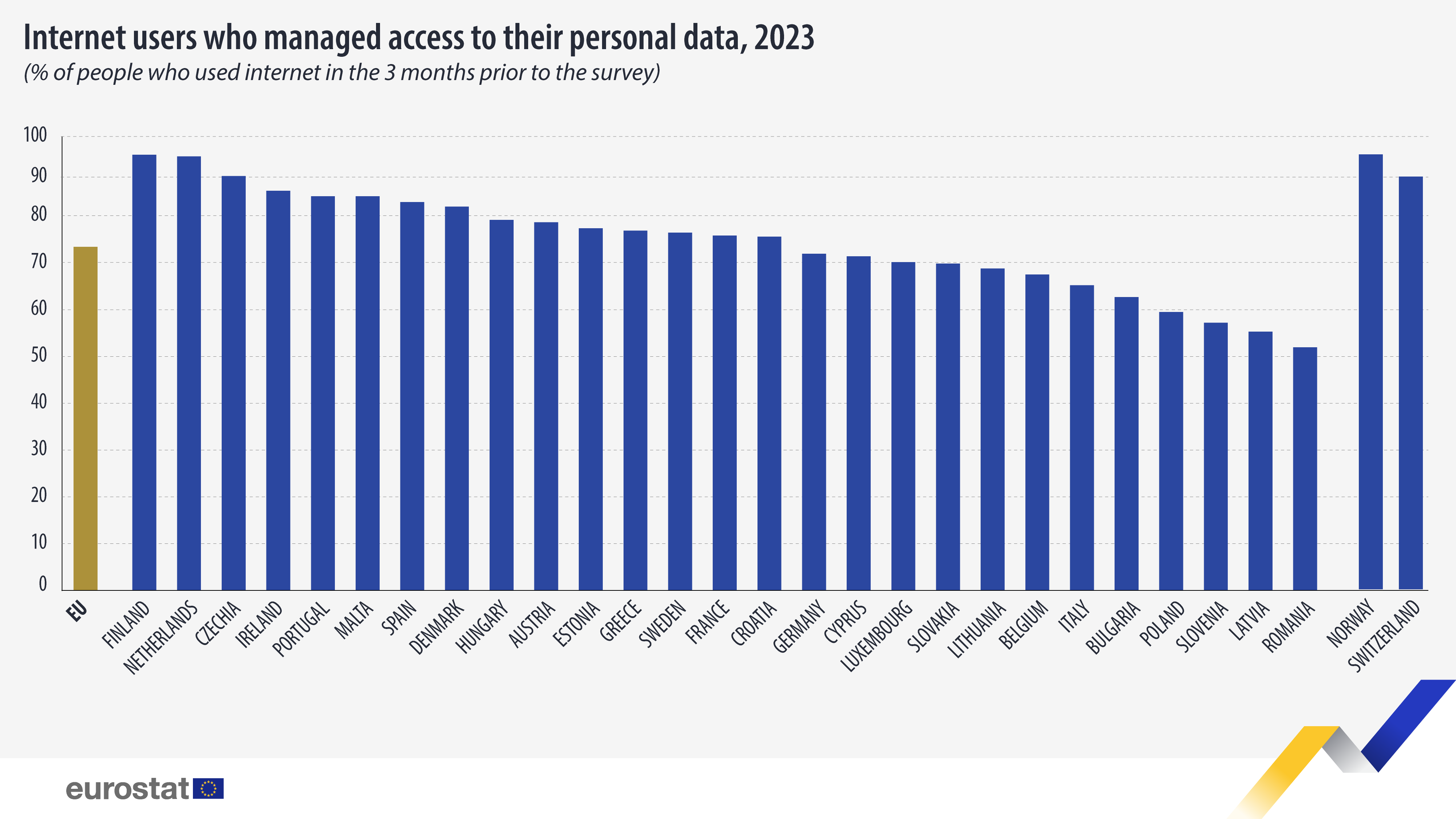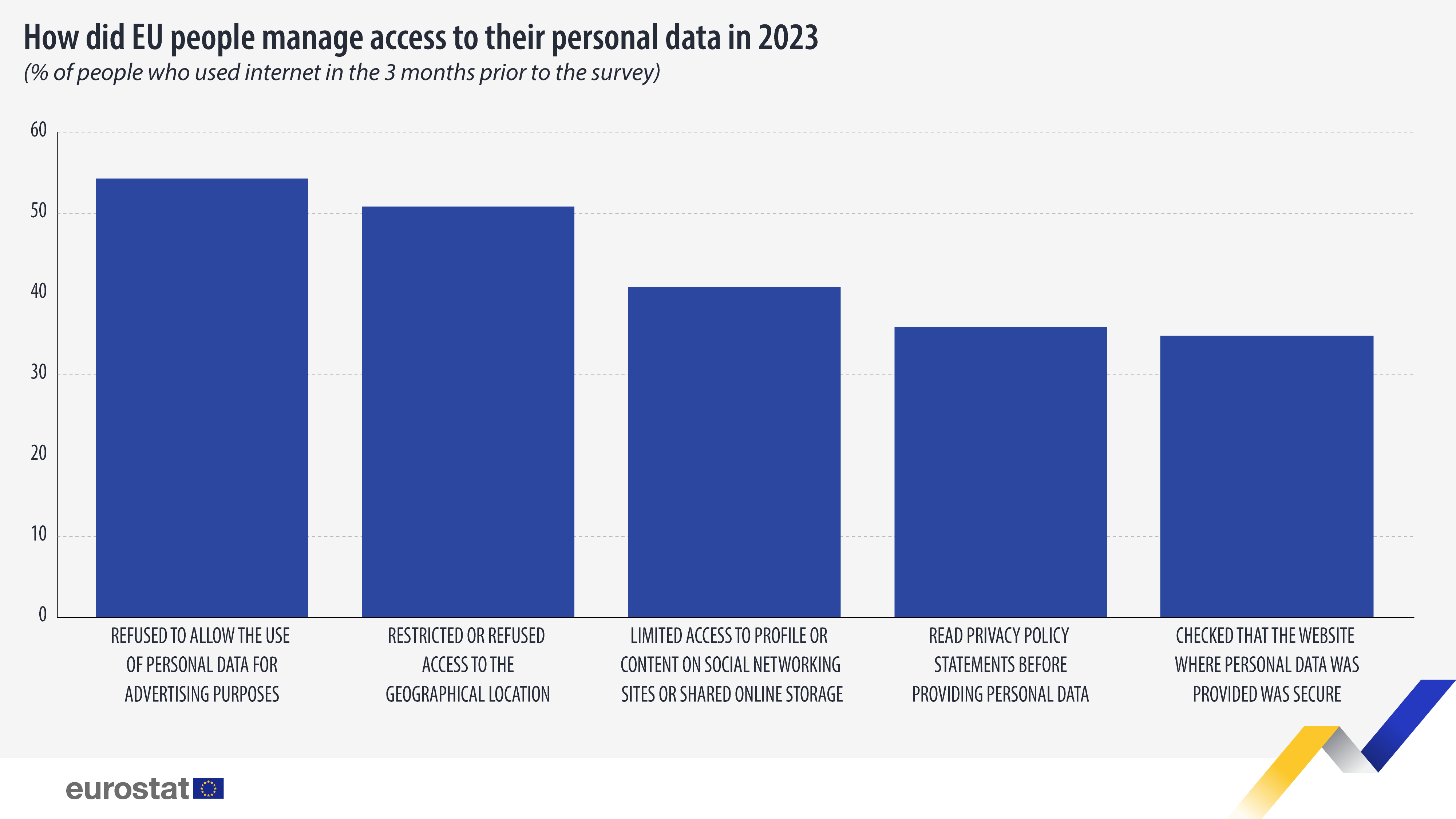How internet users protected their data in 2023

In 2023, only 36% of EU internet users read privacy policy statements before providing personal data.
More than half (54%) of the internet users refused to allow the use of personal data for advertising, and just over half (51%) restricted or refused access to their geographical location. In addition, 41% limited access to their profile or content on social networking sites or shared online storage.
When it came to the protection of the personal data they shared, only 35% checked that the website where they provided their personal data was secure.
When considering all these methods of controlling the use of personal data, nearly three quarters (73%) of EU internet users managed the access to their personal data online in some way in 2023.
Source dataset: isoc_cisci_prv20
The share of internet users who managed access to their personal data in 2023 varied across the EU countries. The highest shares were observed in Finland and the Netherlands (both 93%), followed by Czechia (89%).
In contrast, the lowest shares were recorded in Romania (52%), Latvia (55%) and Slovenia (57%).

Source dataset: isoc_cisci_prv20
This news item marks the Data Protection Day celebrated on 28 January.
For more information
- Statistics Explained article on digital economy and society statistics - households and individuals
- Thematic section on digital economy and society
- Database on digital economy and society
Methodological notes
The data in this article are based on the annual survey on use of ICT in households and by individuals; the results above refer to internet users, i.e. individuals who have used the internet in the three months prior to the survey and the data reflects their experiences during the last 3 months prior to the survey.
If you have any queries, please visit our contact us page.

